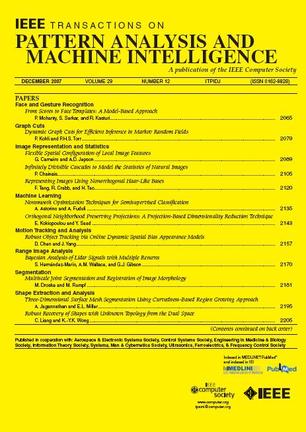Bandit问题的PAC Bayes界:综述和实验比较
IF 20.8
1区 计算机科学
Q1 COMPUTER SCIENCE, ARTIFICIAL INTELLIGENCE
IEEE Transactions on Pattern Analysis and Machine Intelligence
Pub Date : 2022-11-29
DOI:10.48550/arXiv.2211.16110
引用次数: 2
摘要
PAC-Bayes最近作为一种有效的理论重新出现,人们可以通过它推导出具有严格性能保证的原则性学习算法。然而,PAC-Bayes在土匪问题上的应用相对较少,这是一个很大的不幸。医疗保健、金融和自然科学领域的许多决策问题都可以建模为强盗问题。在许多这样的应用程序中,具有强大性能保证的原则算法将非常受欢迎。本调查提供了PAC-Bayes边界的概述,为土匪问题和这些边界的实验比较。一方面,我们发现PAC-Bayes边界是设计具有性能保证的离线强盗算法的有用工具。在我们的实验中,PAC-Bayesian离线上下文强盗算法能够学习具有竞争性预期奖励和非空洞性能保证的随机神经网络策略。另一方面,我们测试的PAC-Bayesian在线强盗算法具有松散的累积后悔界限。最后,我们讨论了pac -贝叶斯强盗算法未来工作的一些主题。本文章由计算机程序翻译,如有差异,请以英文原文为准。
PAC-Bayes Bounds for Bandit Problems: A Survey and Experimental Comparison
PAC-Bayes has recently re-emerged as an effective theory with which one can derive principled learning algorithms with tight performance guarantees. However, applications of PAC-Bayes to bandit problems are relatively rare, which is a great misfortune. Many decision-making problems in healthcare, finance and natural sciences can be modelled as bandit problems. In many of these applications, principled algorithms with strong performance guarantees would be very much appreciated. This survey provides an overview of PAC-Bayes bounds for bandit problems and an experimental comparison of these bounds. On the one hand, we found that PAC-Bayes bounds are a useful tool for designing offline bandit algorithms with performance guarantees. In our experiments, a PAC-Bayesian offline contextual bandit algorithm was able to learn randomised neural network polices with competitive expected reward and non-vacuous performance guarantees. On the other hand, the PAC-Bayesian online bandit algorithms that we tested had loose cumulative regret bounds. We conclude by discussing some topics for future work on PAC-Bayesian bandit algorithms.
求助全文
通过发布文献求助,成功后即可免费获取论文全文。
去求助
来源期刊
CiteScore
28.40
自引率
3.00%
发文量
885
审稿时长
8.5 months
期刊介绍:
The IEEE Transactions on Pattern Analysis and Machine Intelligence publishes articles on all traditional areas of computer vision and image understanding, all traditional areas of pattern analysis and recognition, and selected areas of machine intelligence, with a particular emphasis on machine learning for pattern analysis. Areas such as techniques for visual search, document and handwriting analysis, medical image analysis, video and image sequence analysis, content-based retrieval of image and video, face and gesture recognition and relevant specialized hardware and/or software architectures are also covered.

 求助内容:
求助内容: 应助结果提醒方式:
应助结果提醒方式:


